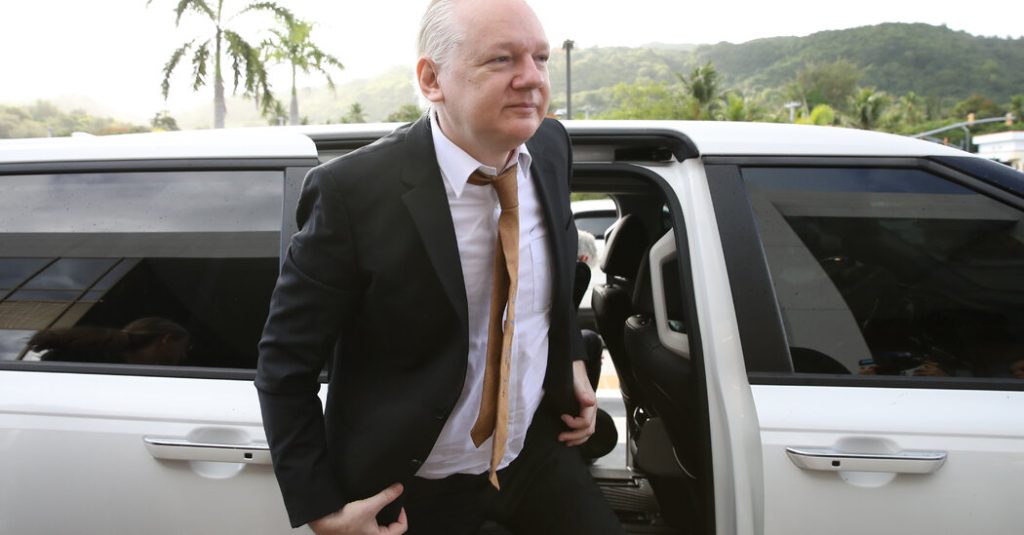Julian Assange, the founder of WikiLeaks, pleaded guilty to a felony charge of violating the U.S. Espionage Act in a remote U.S. courtroom in Saipan. After more than a decade, his case involving classified secret military and diplomatic documents published in 2010 finally reached a conclusion. Assange appeared in court with his lawyer, Jennifer Robinson, and Australian Ambassador Kevin Rudd, before boarding a plane for Australia under a plea deal that allowed him to return to normal life after spending over five years in British custody, fighting extradition to the United States. His journey was documented by his family and lawyers as they posted photos and videos online from a chartered jet and through various stops.
During the court proceedings, Assange carefully responded to questions from U.S. District Judge Ramona Manglona, defending his actions as that of a journalist seeking information from sources. He believed that his actions were legal and constitutionally protected, despite acknowledging the challenges of prevailing in a case where the First Amendment and Espionage Act appeared contradictory. In Australia, there was eagerness among relatives, supporters, and politicians to welcome Assange home, with Prime Minister Anthony Albanese lobbying heavily for his release. Many Australians agreed that the case had dragged on for too long, especially since Chelsea Manning, who had passed documents to WikiLeaks, had already served her sentence and been set free.
The support for Assange in Australia, despite the country’s own strict espionage laws and culture of secrecy, was bipartisan. Politicians from both the left and right welcomed his return, with some viewing him as a hero for revealing secrets that Washington wanted to hide. The embrace of Assange reflects a cultural affinity for the underdog and ambivalence towards America’s wars after the September 11 attacks, as well as the U.S. justice system. Even conservative Australians showed support for Assange, acknowledging that he should never have been jailed for telling the truth.
Assange’s father, John Shipton, expressed relief and joy at having his son home after 15 years of distance, detention, and various forms of incarceration. The lengthy legal battle and uncertainty surrounding Assange’s future had finally come to an end, allowing him to return to Australia and resume his life. The plea deal and his return to Australia marked a new chapter in Assange’s long-standing legal saga, one that had captured global attention and sparked debates about press freedom, government transparency, and the limits of free speech. As Assange settled back into normalcy, his supporters hoped that the ordeal had come to a close, while his critics continued to raise questions about the implications of his actions and their impact on national security.


